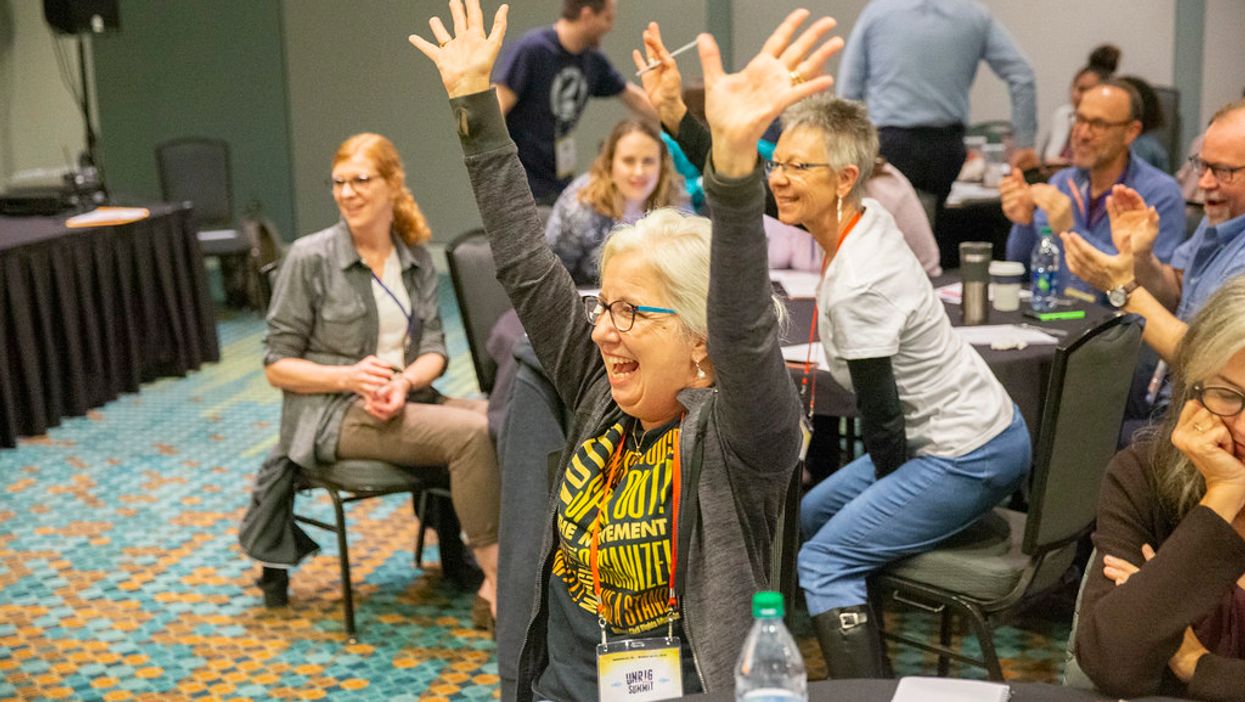Silver is the director and co-founder of RepresentUs, a right-left anti-corruption group.
We see the breathtaking headlines so often, it's hard to muster the sadness and outrage they deserve: Nearly half of American families are unable to afford basics like housing and food. Bloomberg News reports that nearly 40 percent of Americans would struggle to cover a $400 emergency. Low unemployment and headlines about a strong economy bely massive swaths of Americans struggling just to make ends meet. Our roads and bridges are in disrepair. Average life expectancy, infant mortality, our educational system, and myriad other indicators continue to fall in global rankings of developed nations. Public trust in government and our elected leaders is anemic, while gridlock and polarization define politics. A soft civil war is driving everyday Americans apart in dangerous, foreboding ways.
But amidst this bleak landscape, something special is happening across our nation. Record numbers of Americans, liberal and conservative, are connecting the dots between the political dysfunction and its root cause: broken election, campaign finance, and ethics laws that skew incentives, and actually cause our elected leaders to behave badly. In 2018, a record number of democracy reforms won at the ballot and in state legislatures: anti-gerrymandering, ranked-choice voting and transparency, to name a few. Laws that empower voters with more choice and more voice, and restore trust in American democracy. The victories were driven by local grassroots leaders from the right and the left, finding common ground in support of common sense solutions. Washington politicians could learn a lot from what's happening in the states where people are putting country over party.
The movement's recent wins were celebrated—and the next wave of reform was mapped out—at the Unrig Summit in Nashville earlier this year. More than 2,000 people, including attendees from all fifty states, participated in what was the largest gathering of this cross-partisan democracy movement to-date.
What's really powerful about this is that if you look at the arc of American history, this is how change happens. From women's suffrage to marriage equality, from prohibition to term limits, reforms that faced seemingly insurmountable obstacles in Washington, D.C., prevailed across the nation. This is how change happens.
It is now up to us – every American – to take this nascent democracy movement and turn it into a big, powerful democracy movement: to leverage the momentum from these local victories, and begin shifting it from a political movement to a cultural movement. Issues such as marriage equality and criminal justice made progress because they were able to take once-obscure issues and make them kitchen table issues.
To do that we need to get 3.5 percent – or 11 million Americans – actively engaged in the American democracy movement. Why this number? A study from Columbia University looked at data from 1900 to 2006 and found that every political movement around the world that got 3.5 percent of the population actively engaged in their cause won.
Progressives and conservatives can unite around the reform that makes all other reforms possible. Skeptics of strange bedfellow coalitions need only look at the math. According to Gallup, only 26 percent of the country is liberal, 35 percent is conservative, and another 35 percent are moderates. No single ideological segment can win alone. And polling indicates that all of these groups support policies that unrig politics. And they must be the right policies; those that sit at the intersection of policy impact and political viability. Policies that are transformative, game-changing and winnable, backed by a unified movement that is singing from the same hymnal in a way that goes beyond cerebral arguments and deeply connects with voters at an emotional level.
That's the key to winning. This is how we reclaim our precious democracy. And if we do it well, we can manifest a future where our leaders put country over party. Where voters matter more than big donors. Where we have real, meaningful choices on Election Day, and where civility and compassion define, rather than defy, government.
Millions of Americans feel that we the people are destroying ourselves from within. But I have faith, because nearly all of us care deeply about this earth and all the people on it. Millions more Americans are having the lightbulb moment when we realize that unrigging our political system holds the key to advancing the issues we care about most and making our country work for everyday Americans.
I've never been more certain that if we take the 2018 wins and we unite around this vision, we will continue to see a massive upswell of reforms sweep across America—all the way to Washington, D.C. Today, there are more than 100 important campaigns coalescing across the nation for 2019 and 2020: from ranked-choice voting in Massachusetts, to dark money disclosure in Arizona, to anti-gerrymandering in Arkansas, there are dozens of other emerging campaigns in cities and states across the United States. These reforms hold the key to fixing our political system and ultimately breaking the cycle of corruption in American government.



















Trump & Hegseth gave Mark Kelly a huge 2028 gift